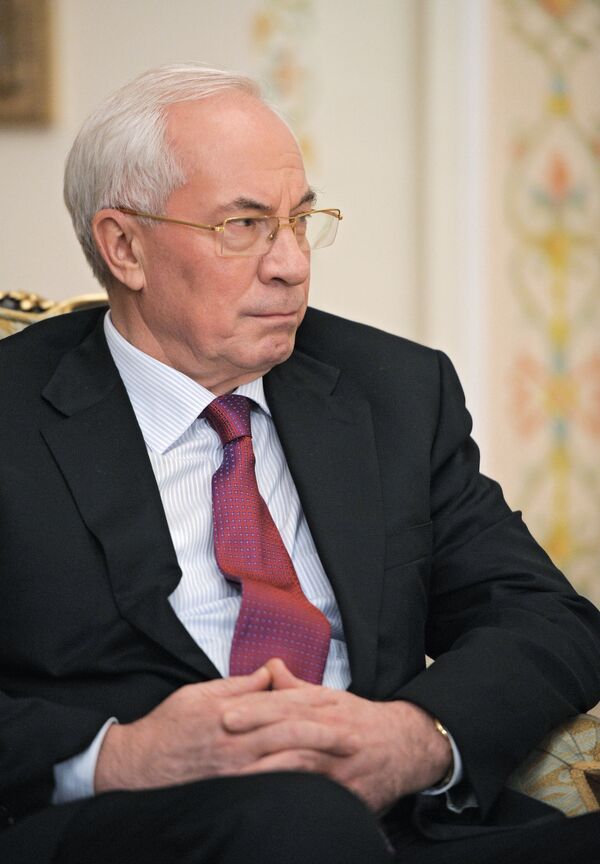Ukraine is ready to do its best to settle all problems hampering relations with the European Union, particularly the case of former Prime Minister Yulia Tymoshenko, Ukrainian Prime Minister Mykola Azarov said Tuesday.
“We are ready to do our best to remove obstacles in our relations with the European Union. There should be no doubts,” Azarov, who arrived in Brussels to take part in a meeting of the Ukraine-EU Council dedicated to economic cooperation, said at press conference.
At the EU-Ukraine Council meeting the both parties spoke of their desire to sign as soon as possible a Trade Agreement on an association stipulating the establishment of a free trade zone.
This agreement offers Ukraine closer economic and political integration with the EU as a step toward full membership, but it depends on Ukraine adopting democratic and legal standards in line with the rest of Europe.
Tymoshenko’s case is the main obstacle to progress on this issue, Azarov said. “But I and our colleagues know that that these are temporary problems and our cooperation is long-standing in nature,” he said.
In a Monday statement, EU foreign policy chief Catherine Ashton said the EU wishes to sign the agreement, “but Ukraine needs to show that it lives in the spirit of this political association.”
Kiev is paying heed to the EU opinion on Tymoshenko’s case, especially on the medical treatment she needs, Azarov said. “We are not merely replying to the requests of our partners, but are taking specific actions.”
The government is not persecuting the political opposition. “You are well aware that the government and the president come in for severe criticism - and sometimes unfounded accusations - at opposition demonstrations. Give me the name of just one person who has been punished for this?”
Ukraine continues improving its judiciary system in order to achieve European standards, Azarov said .
However, on Tuesday EU Ambassador in Ukraine Jose Manuel Pinto Teixeira said the European Union believes that in 2011 the situation with human rights and implementation of democratic norms has worsened in Ukraine.
Several EU governments in recent weeks, as well as the European Commission, the EU administrative body, have unilaterally declared they will not attend the upcoming Euro 2012 soccer championship in Ukraine.
A leader of the 2004 pro-democracy mass protests known as the Orange Revolution, Tymoshenko has been jailed for seven years behind bars for pushing through the 2009 gas deal with Russia, which Ukrainian authorities say caused multi-billion-dollar damage to the country’s economy.
Tymoshenko denies wrongdoing, saying her trial was part of President Viktor Yanukovych’s crackdown on his political rivals, an allegation dismissed by Ukrainian officials.
Six years after the Orange Revolution Russia-oriented Viktor Yanukovych returned to power. Since then, relations with Europe have soured amid accusations of human rights violations, growing corruption, and misuse of power.


